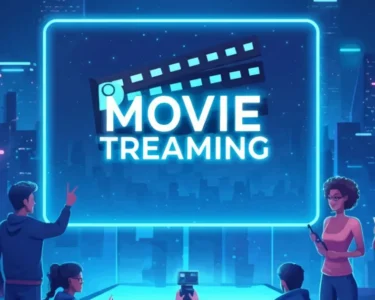No, April 24th is not National R@PE Day. This is a completely false claim and a harmful rumor that circulates on social media and various online platforms from time to time. The idea that April 24th would be designated as a day of such a sensitive and tragic nature is unequivocally false and should be debunked.
In this article, we will delve deeper into why this misinformation is harmful, explore the origins of this myth, and provide factual information about the dates and observances that exist to raise awareness about sexual violence and promote prevention.
The Dangerous Misinformation Surrounding April 24th
The claim that April 24th is National R@PE Day has been circulating on the internet, often appearing in the form of misleading or fabricated posts on social media platforms, websites, or even memes. These posts generally claim that April 24th is a day set aside for celebrating or trivializing rape, which is deeply offensive and incredibly damaging to survivors of sexual violence.
The spread of this misinformation is not only inaccurate but also contributes to a culture of insensitivity and normalization of sexual violence. It trivializes an issue that affects millions of people globally and undermines efforts to create a society where sexual violence is taken seriously and addressed with the urgency it deserves.
What Is National Sexual Assault Awareness Month?
While April 24th is not National R@PE Day, it is important to note that April is, in fact, National Sexual Assault Awareness Month (SAAM) in the United States. This annual observance aims to raise awareness about sexual violence and educate the public on how to prevent it. The entire month of April is dedicated to promoting education, supporting survivors, and advocating for policies that protect individuals from sexual assault.
SAAM is an important initiative supported by numerous organizations, including the National Sexual Violence Resource Center (NSVRC), RAINN (Rape, Abuse & Incest National Network), and the American Sexual Health Association (ASHA). These organizations work tirelessly to reduce sexual violence through awareness campaigns, advocacy, and by providing resources to survivors.
Throughout April, various activities take place, such as community events, social media campaigns, and educational programs, all designed to shine a light on the realities of sexual assault, provide support for survivors, and encourage people to take action to prevent future violence.
The Harmful Effects of False Claims
The false claim that April 24th is National R@PE Day is not just a minor error or harmless misunderstanding—it is deeply harmful in multiple ways. Here are some of the key reasons why spreading such misinformation is dangerous:
1. Traumatizes Survivors
One of the most significant harms of spreading misinformation like this is the emotional and psychological toll it takes on survivors of sexual violence. Survivors already carry the weight of their trauma, and seeing a day dedicated to something as horrific as rape trivialized for humor or social media engagement can deepen their pain.
For many survivors, the experience of sexual assault is one of the most traumatic events of their lives. Making light of such a serious issue by claiming that there is a day celebrating it only reinforces feelings of shame, guilt, and isolation, which many survivors already struggle with.
2. Normalizes Sexual Violence
The idea of designating a day for rape—whether as a joke or as part of a distorted narrative—has the dangerous potential to normalize sexual violence. It fosters an environment where the gravity of sexual assault is downplayed, which can contribute to victim-blaming and a lack of accountability for perpetrators.
When people are exposed to false claims like this, it can diminish the significance of real efforts to combat sexual violence and make it more difficult for survivors to come forward, share their stories, and receive the support they need.
3. Undermines Advocacy Efforts
Organizations that work to prevent sexual assault and provide resources to survivors, like RAINN and the NSVRC, rely on public awareness and education to bring about change. The spread of false information about something as serious as sexual violence detracts from these efforts and harms the credibility of advocacy groups. It can lead to confusion, misinformation, and less public engagement with the actual initiat ives aimed at reducing sexual violence.
When people are led to believe that a day like April 24th is dedicated to celebrating rape, they may be less likely to take campaigns and educational programs seriously. This can lead to a decrease in awareness and fewer people willing to take action in preventing sexual violence.
4. Distorts the Purpose of National Sexual Assault Awareness Month
April, as National Sexual Assault Awareness Month, is a time to focus on education, healing, and prevention. Spreading false information about dates like April 24th distracts from this important purpose. It makes it more difficult for people to discern what is factual and what is part of a harmful hoax.
This misinformation dilutes the message of sexual assault awareness by promoting false narratives instead of encouraging meaningful discussions about how to address sexual violence in our communities. It also minimizes the importance of supporting survivors and respecting their healing journeys.
Recognizing the Truth Behind Sexual Assault Awareness
To combat the spread of misinformation and to honor survivors, it is essential to acknowledge the truth behind the observance of National Sexual Assault Awareness Month. The month of April is meant to shine a light on an issue that affects millions of people worldwide.
In addition to National Sexual Assault Awareness Month, many other initiatives exist that promote the prevention of sexual violence, support survivors, and educate communities about how to combat rape culture. These include:
1. The Teal Ribbon Campaign
The Teal Ribbon Campaign is a widely recognized symbol for sexual assault awareness. It encourages people to wear a teal ribbon during the month of April as a sign of solidarity with survivors and a commitment to ending sexual violence.
2. The #MeToo Movement
The #MeToo movement, which gained widespread attention in 2017, has empowered countless survivors of sexual violence to share their stories and demand accountability from perpetrators. This movement has led to a shift in how society talks about sexual assault, creating a space for survivors to be heard and believed.
3. Community Education and Advocacy
Local, regional, and national organizations work year-round to provide education and resources on how to prevent sexual violence. These include teaching bystanders how to intervene in potentially harmful situations, promoting consent education, and supporting policies that protect individuals from abuse.
4. Resources for Survivors
Numerous resources exist for survivors of sexual violence, ranging from hotlines like RAINN’s 24/7 confidential support line to support groups and counseling services. Organizations also work to provide legal advocacy and help survivors navigate the often difficult process of reporting their assaults.
How to Support Survivors of Sexual Violence
If you are looking to help raise awareness and support those affected by sexual violence, here are some steps you can take:
- Learn the Facts: Take the time to educate yourself on the realities of sexual violence. Understand the statistics, myths, and the signs of abuse. Organizations like RAINN and NSVRC provide a wealth of resources for education.
- Support Survivors: If someone you know is a survivor of sexual violence, offer them your support without judgment. Encourage them to seek professional help, but never pressure them to share more than they’re comfortable with.
- Engage in Advocacy: Participate in campaigns during Sexual Assault Awareness Month and throughout the year. You can join organizations that promote prevention, educate others, and advocate for policy changes that protect survivors and hold offenders accountable.
- Challenge Misinformation: If you encounter posts or content that promotes false claims like April 24th being National R@PE Day, speak up. Share the truth, educate others, and help combat harmful myths that undermine the importance of sexual assault awareness.
Conclusion
April 24th is not National R@PE Day, and the claim that it is only serves to spread harmful misinformation. Sexual assault is a grave issue, and it should be treated with the seriousness and respect it deserves. While April is National Sexual Assault Awareness Month, a time to educate the public and support survivors, it is crucial that we remain vigilant against the spread of false and damaging information.
We can honor survivors of sexual violence by supporting organizations that work to prevent abuse, providing resources to those in need, and challenging harmful myths wherever we encounter them. It is through these efforts that we can make real progress in creating a society where sexual violence is no longer tolerated and survivors are treated with the dignity they deserve.


